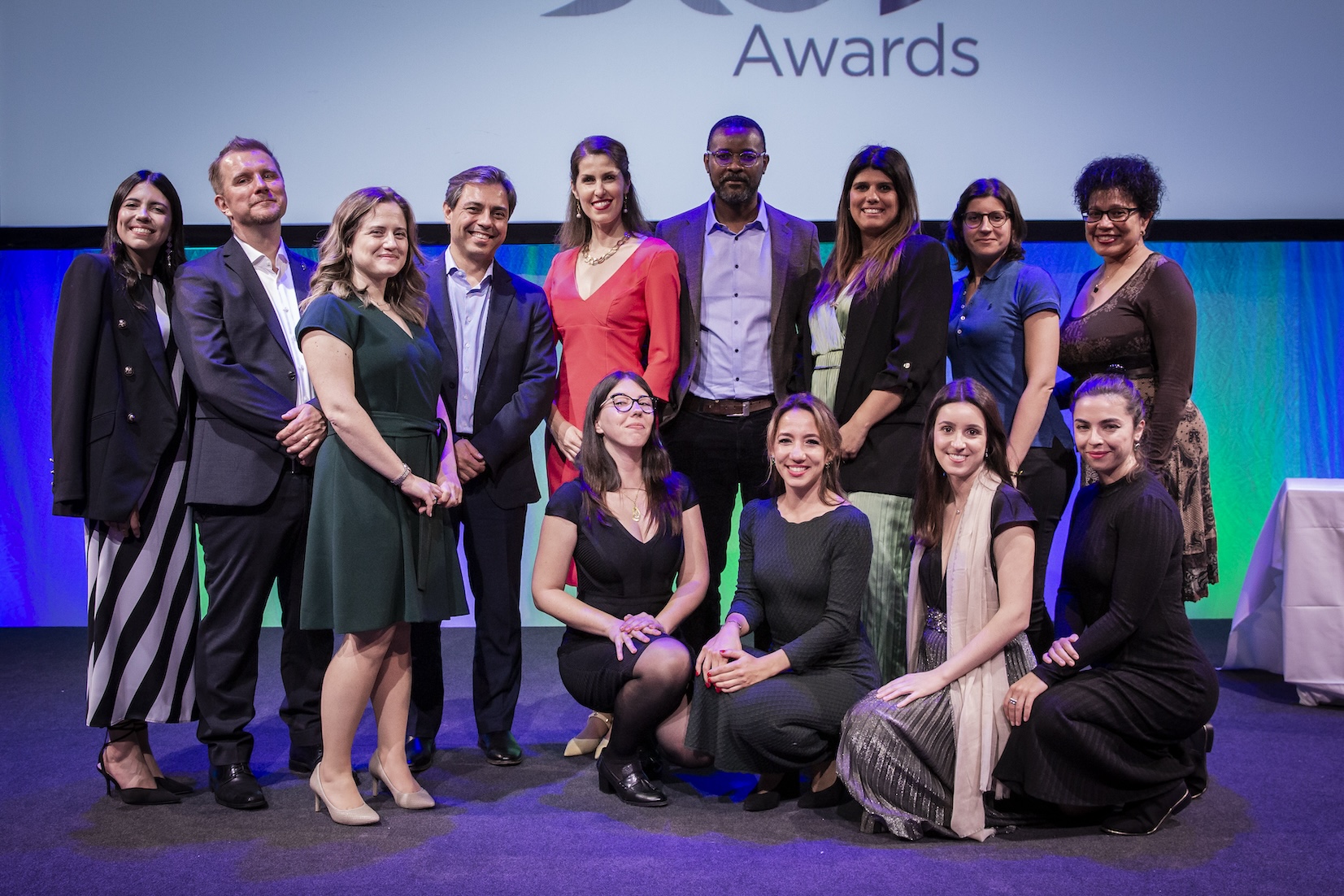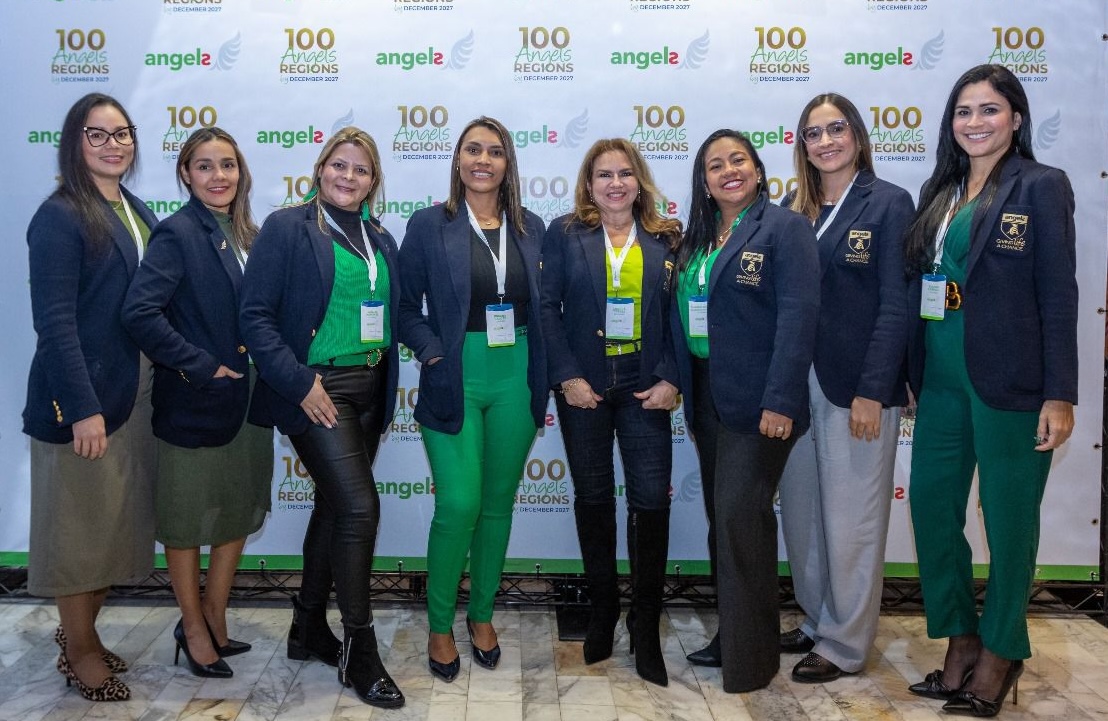Securing free airtime for a topic most people would rather not talk about hadn’t been easy, but that senior Angels consultant Luján Castrillón doesn’t give up easily is something to which the stroke teams at two leading hospitals in Córdoba can attest.

At the start of spring 2021, as officials in Argentina once more tightened restrictions due to increases in Covid-19 infections and hospitalisations, listeners in Córdoba province were tuning in to their local radio stations to learn about an even more pervasive health threat.
The voices they heard belonged to Dr Pamela Dorrego, a neurologist from the city of Córdoba, and Luján Castrillón who for several years has been advocating for stroke patients as a senior Angels consultant.
Although stroke prevalence data for Argentina is scarce, a recent population-based study conducted in a nearby province found that two out of every 100 people over 40 years old were survivors of stroke, and as in the rest of Latin America, stroke is a leading cause of death and disability in a country where a quarter of the population have hypertension.
The radio broadcasts came about as the result of tireless petitioning by Luján who had targeted stations in regions where large percentages of stroke patients were arriving at hospital outside of the treatment window. The aim was to make listeners of Radio Río Cuarto, Radio Las Rosas and Radio Sucesos aware of the symptoms of stroke and the importance of treating stroke as an emergency and ensuring the patient was treated as quickly as possible.
Securing free airtime for a topic most people would rather not talk about hadn’t been easy, but that Luján doesn’t give up easily is something to which the stroke teams at two leading hospitals in Córdoba can attest.

Luján had been working with Córdoba’s Hospital Ferreyra since 2019 and Sanatorio Allende since 2018 helping both hospitals raise racanalisation rates and reduce door-to-treatment times and facilitating training for healthcare professionals. But Covid-19 was impacting on performance due to Covid screening of new admissions, and new personnel being assigned to stroke teams.
By April 2021, one year into the pandemic, the neurology chiefs at both hospitals received a call inviting their teams to participate in simulation training.
“It’s a really important activity to make sure everyone along the stroke pathway is ready when a patient arrives,” Luján says, conceding that not all hospital directors were easily convinced that what they sometimes viewed as unwelcome scrutiny would benefit their teams.
She however had no difficulty persuading Hospital Ferreyra’s head of neurology Dr Gustavo Ortiz or Sanatorio Allende stroke coordinator Dr Juan Martin. The fact that she would be prevented by Covid rules to be present at the simulations was a challenge but not ultimately an obstacle. On the principle that if you could have a meeting via Zoom, then surely you could run a simulation via Zoom, plans for the region’s first remote simulations rolled ahead.
On the appointed day at each of the hospitals, a 55-year-old “patient” arrived in triage with symptoms that lead to the stroke code being activated and everyone from neurologist to radiologist being placed on alert. Despite having diabetes and high blood pressure the patient was indicated for recanalisation therapy and in the case of Hospital Ferreyra “treatment” commenced in under 50 minutes. At Sanatorio Allende, the team shaved valuable minutes off the door-to-needle time with treatment commencing after 19 minutes.
“The nurses were better prepared, the neurologist arrived sooner to look at the CT scan, and the entire team worked faster than in the previous round,” Luján says.
“Thrombolysis drills are an excellent tool to stimulate participation and teamwork,” said Hospital Ferreyra’s Dr Ortiz who is also coordinator of the Telemedicine Programme at Córdoba’s Private University Hospital and Assistant Professor of Clinical Neurology at the University of Miami. “It was very interesting to see how interested all the professionals became in finding out how well they had worked and how long it took them. Even the hospital security personnel were interested and asked us to give them instructive talks on how to act in cases of acute stroke.
“The time difference between the first and second drills was very noticeable, we were able to cut our door-to-treatment time to almost half. In the time between the two drills, we did not do any kind of theoretical training for the team, so the only educational act was the drill itself. It stimulated participation and a desire for self-improvement.
“From the moment we first raised the possibility of carrying out these activities with the hospital authorities, we received great support. In turn, the participation of the residents was fundamental. They took the job of acting seriously and responsibly. My guess is that they will not forget these experiences.”
Sanatorio Allende’s door-to-treatment time of under 20 minutes testified to this hospital’s extensive experience of stroke treatment. But however streamlined their processes may be, good is never good enough, was the message from Dr Juan Martin who as well as being a member of the Neurological Society of Argentina is Assistant Professor of Neurology at the Catholic University of Córdoba.
“We are constantly working with the Angels Initiative to implement training in each area of the unit, including nursing and neuro-imaging. We are convinced that this teamwork means that more patients will benefit from receiving the correct treatment in time.”
Dr Ortiz agrees: “I hope to see these drills carried out among all the stroke and emergency teams in our region, so that more patients will receive the necessary treatment with the consequent decrease in morbidity and mortality from stroke.”
Meanwhile Luján hopes to be back on the airwaves at the end of October to coincide with World Stroke Day, and she has even recruited one of the funniest people in Argentina for her campaign. Comedian Rodrigo Vagoneto didn’t hesitate to attach his name to the cause; like Luján he is willing to do whatever it takes.


